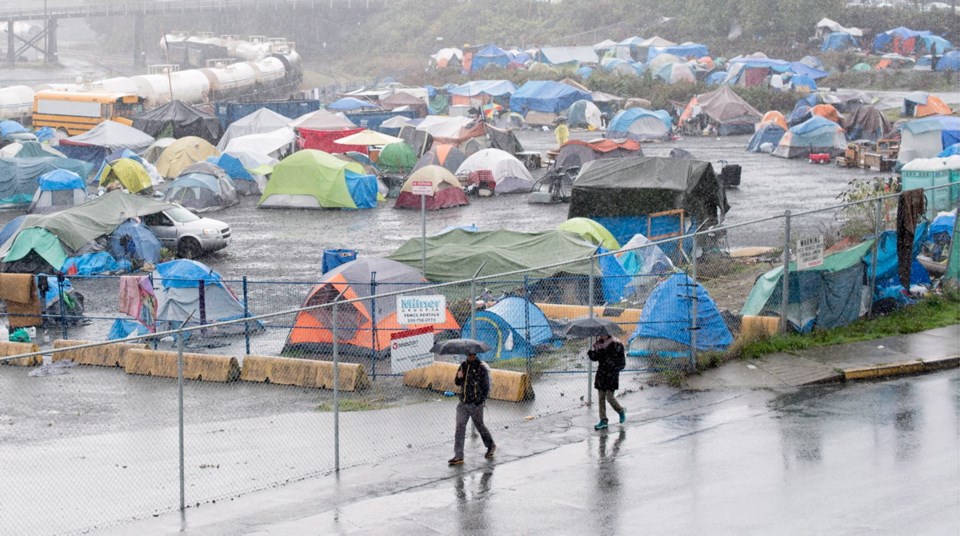More services and more money are needed to tackle ongoing social issues facing Nanaimo, says a city councillor who has served as a clinical counsellor.
“The main message that I want the province to take seriously [is] that we really need to invest more in a proper continuum of care with detox-rehabilitation and job readiness services, both outside and inside the prison system,” Ben Geselbracht said.
Local service providers are collaborating but are limited by funding, said Geselbracht, who is hoping the message will resonate in the countdown to the Jan. 30 provincial byelection in Nanaimo. He and Coun. Sheryl Armstrong are advocates of therapeutic treatment centres.
Nanaimo is facing issues similar to those in other communities, including homelessness, opioid use and overdoses resulting in deaths. Last year, city council voted to spend more than $300,000 to help address these issues.
In the first 11 months of last year, a total of 80 deaths from illicit drug overdoses occurred in Central Vancouver Island, which includes Nanaimo. A total of 214 such deaths were recorded for the entire Island during that time.
The city was also home to the province’s largest tent city, with 300 or more residents. City services provided included garbage collection, running water, regular safety monitoring, legal fees for court cases related to the site, and bringing in heavy equipment to clean it up when it was dismantled.
Geselbracht, who holds a master’s degree in counselling, said society needs to realize that addiction is more than a habit — it is a serious health illness.
Armstrong, a retired Nanaimo RCMP officer, said that provincially owned land next to Nanaimo Correctional Centre at Brannen Lake could be used to set up a therapeutic centre.
Geselbracht worked for about a year and a half at the 55-bed Guthrie House therapeutic community within the correctional centre. The four-month-long program combines work, treatment, counselling and behaviour modelling, and is aimed at tackling addiction.
Geselbracht helped to develop a horticultural skills training program at Guthrie House. Ideally, a therapeutic community would be operated on a sustainable farm, growing produce for internal use, possibly selling it as well and providing residents with job skills. That kind of approach would save money and would give individuals better health outcomes, he said.
Two temporary supportive modular-housing sites have been set up in Nanaimo to take in many of the people who had been staying at the tent city.
Neighbours of one of the sites, on Terminal Avenue, are reporting increased crime, such as drug dealing and thefts, in their neighbourhood. B.C. Housing has said it is taking measures to improve security around the site.
The city will also host an expanded pilot project that has proved effective in helping people stay in treatment for drug use. A team of medical professionals and social workers partner in a system of care that monitors and assists people.



